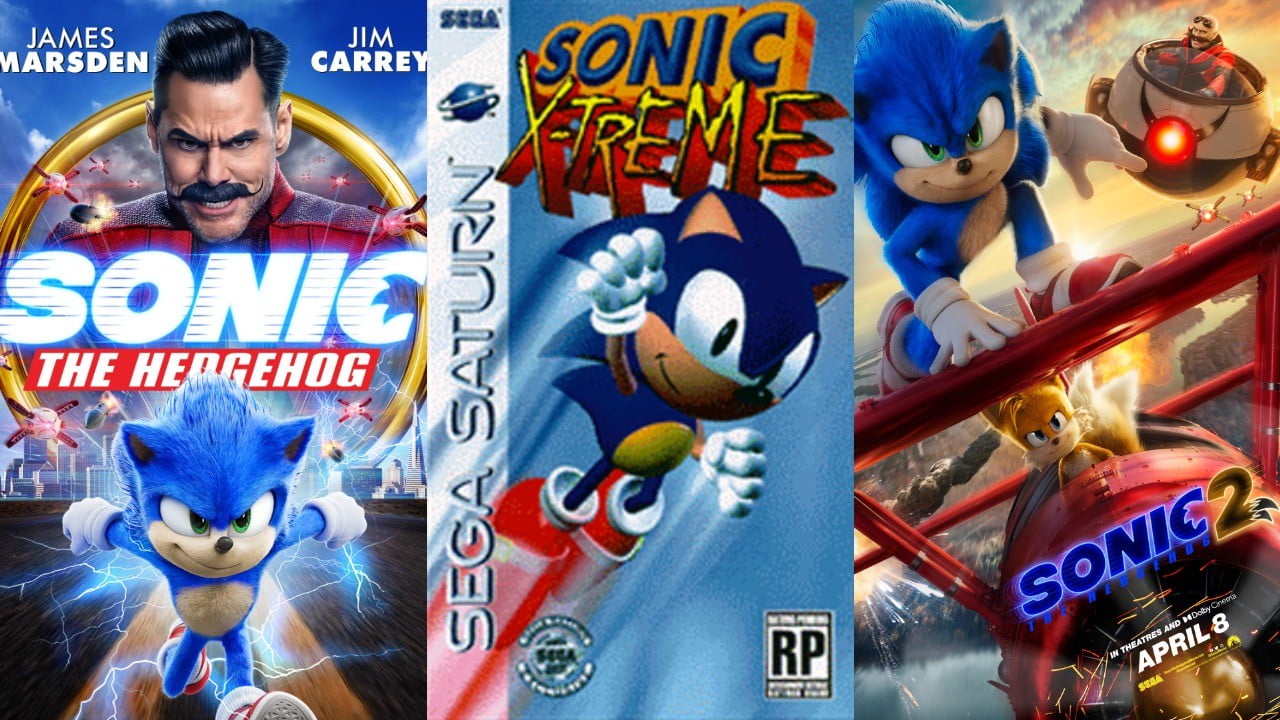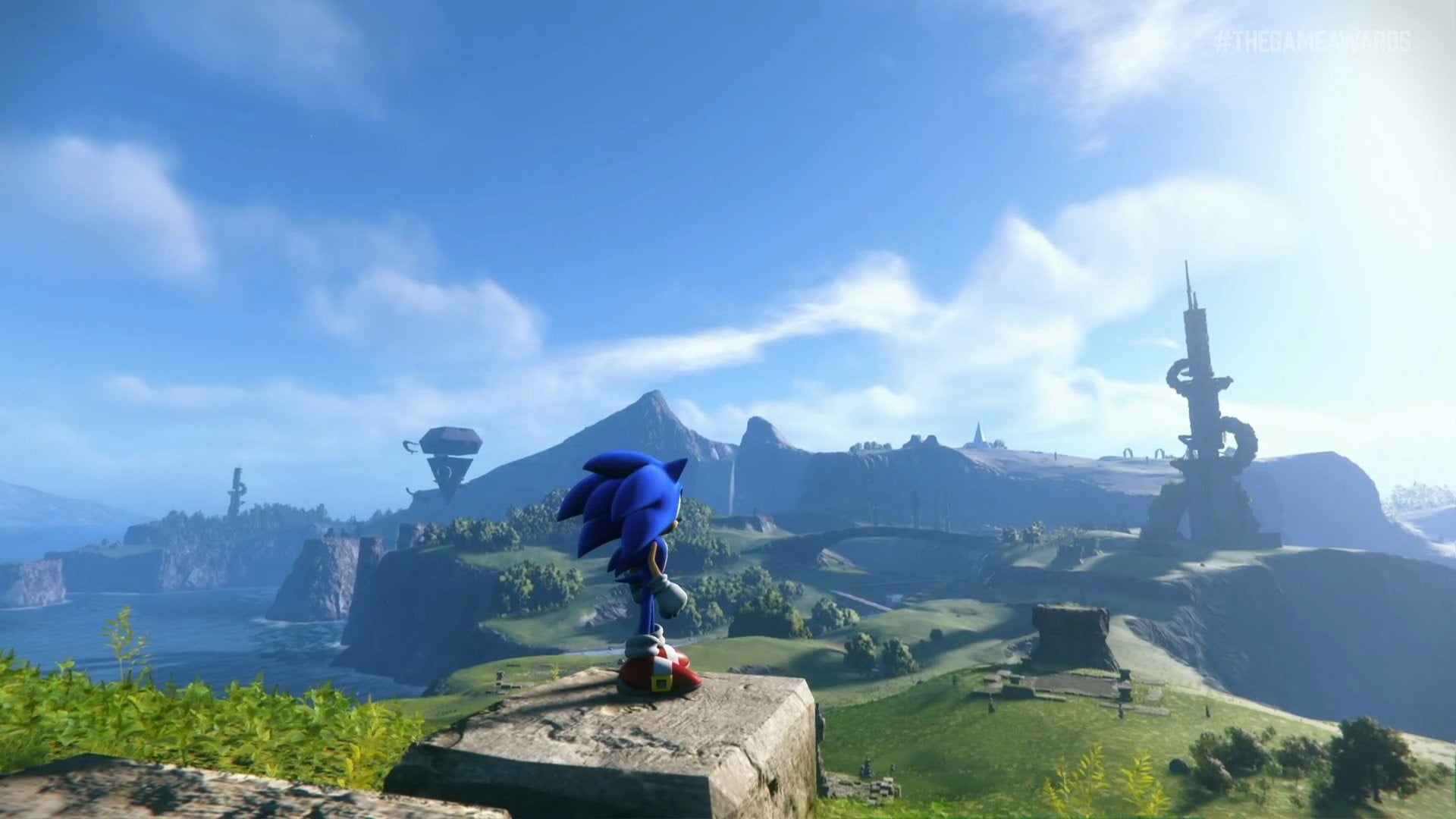Sonic the Hedgehog 2 is a highly anticipated movie for many reasons. This film is not only a big deal for video game fans of the fast-talking Sega mascot, but also for anyone wanting a sequel to 2020’s Sonic the Hedgehog, which is by far one of the better video game movies to come out in the last thirty years.
In the mid-90s, however, Sonic was originally supposed to star in a completely different live-action/animated hybrid film that would tie into a canceled entry in his long-running video game franchise. While author Luke Owen already wrote about this movie in his 2017 history book Lights, Camera, Game Over!: How Video Game Movies Get Made and then a year later in an article for Kotaku, we’re here to analyze the details from the making of Sonic the Hedgehog: Wonders of the World and determine if the final product would’ve even been good.
Where did it all begin?
Early development for this Sonic movie began in 1992 when Sega of America hired Marvel’s Michealene Risley as director of entertainment and consumer products. After striking a deal with ABC to produce two animated Sonic shows, Risley thought the next logical step was to bring Sega’s flagship character to the big screen. Although this idea received pushback from Sega of America’s CEO Tom Kalinske, who believed that bad video game movies like Super Mario Bros. could cause major damage to their respective brands, the company still moved forward with a feature-length Sonic film and partnered with both MGM and Trilogy Entertainment in August 1994 to make it happen.
Risley then asked screenwriter Richard Jefferies to pitch a Sonic movie. Jefferies’ past works include the 1992 horror-comedy The Vagrant and an unproduced Silver Surfer movie. Risley had worked with Jefferies on the latter, so that may explain why he was her first choice to write a Sonic movie. What makes this project even more interesting is that Sega wanted this movie to tie into and release alongside their upcoming video game, Sonic X-Treme. While video games that tie into movies are nothing new, a movie tying into a video game is virtually unheard of–even to this day. Nevertheless, Jefferies consulted with several members from the Sega Technical Institute, including lead programmer Yuji Naka, when writing the treatment for Sonic the Hedgehog: Wonders of the World.
What would the movie have been about?
Most people would expect a Sonic movie to revolve around Sonic, but that’s only half the truth for Sonic the Hedgehog: Wonders of the World. Instead, Jefferies’ script mostly concerns a 12-year-old child of divorce named Josh Pinski, who needs to finish his school paper on a speed barrier-breaking test pilot named Sonic by the next morning or else “his parents will be called in.”
Josh’s dad is a brilliant yet unemployed computer expert named Hal who has invented an AI computer capable of projecting holograms called the eXtremely Radical Intelligence or XRI (this movie was written in the ’90s, after all). Going against his father’s wishes, Josh asks the XRI to finish his paper, but the XRI doesn’t recognize the name Sonic. Instead of giving background info on the test pilot, Josh plugs in his Sega Saturn and starts playing Sonic X-Treme. This causes the XRI to transport Sonic into the real world alongside Dr. Robotnik and his goons. This Sonic, by the way, would have been a fully CGI character in a live-action setting.
Robotnik later recruits Hal to use the XRI for creating a virtual reality theme park. The fact that everything in the park is free attracts the attention of many kids in town, who are replaced with subservient Kinder-Bot replicas while the real children are forced to dig under the city for “the one-in-a-million Chaos Emeralds,” which for some reason exist in the real world. This is all part of Robotnik’s plan to use the Chaos Emerald-powered XRI to holographically project the Eight Wonders of the World and reap the profits–hence the movie’s title.
The third act sees Josh and Sonic lure Robotnik back into the game world where he would be defeated. Josh returns to the real world while Sonic stays behind, believing he’s the only one who can protect his world. Hal decides that the XRI is too dangerous to use again but instead of destroying it, Josh simply stores it away somewhere, probably to set up sequels should the first movie prove to be a hit.
Why was the movie canceled?
Jefferies submitted his Sonic script in May 1995 to mostly positive feedback from both MGM and Sega. However, the latter’s COO Shinobu Toyoda thought that Jefferies should replace Robotnik with a new villain that Sonic fans wouldn’t be familiar with, while Risley fought to keep Robotnik in the film. Unfortunately, MGM broke ties with Sega before the movie could continue development.
Sega let Jefferies shop the script around to other studios, so he brought it to Dreamworks since he already had connections there. Unfortunately, the neophyte studio passed on the project since they were looking for “a low-priced intellectual property” and Sonic, who was still popular in the mid-to-late ’90s, was too pricey to take on.
The final nail in the coffin for Sonic the Hedgehog: Wonders of the World was when Sega officially canceled Sonic X-Treme in early 1997. Other reasons were attributed to this movie’s implosion, including creative differences and money disputes between MGM and Sega, but even fixing those problems probably wouldn’t have saved the film.
Would the movie have succeeded?
Even though the plot details for Sonic the Hedgehog: Wonders of the World make it sound like a more modern Who Framed Roger Rabbit? (minus the creativity and originality), the movie still may not have worked — at least not financially. While many ideas from Wonders of the World would carry over into the 2020 Sonic movie, including a fully CG-animated Sonic in the real world, they would have been a bit too demanding to pull off in the mid-90s. For reference, the first Toy Story was fully CG-animated and cost $30 million in 1995. Imagine how much money a live-action Sonic movie with a CG-animated character, which also needed to be released alongside a Sonic video game, would have cost around that time? Also, while Roger Rabbit was a financial success in 1988, further attempts at a similar live-action/animation hybrid were met with critical derision and audience indifference at the box office. Remember Cool World?
Thankfully, Sega would have more success with a Sonic movie in 2020, which became the most profitable video game movie to date and spawned a sequel that looks to bring in more elements from the game. Moreover, Paramount is so confident in 2022’s Sonic the Hedgehog 2 that they have already greenlit a third film as well as a spinoff series for their Paramount+ streaming service revolving around Idris Elba’s Knuckles the Echidna, who will make his cinematic debut in Sonic the Hedgehog 2. While it’s worth wondering what could have been, MGM’s Sonic movie died in the 1990s so that Paramount’s Sonic movie franchise could live in the 2020s, when audiences’ tastes, and technology, could fully realize the potential of a big-screen hedgehog saving the world from a guy named Eggman.


